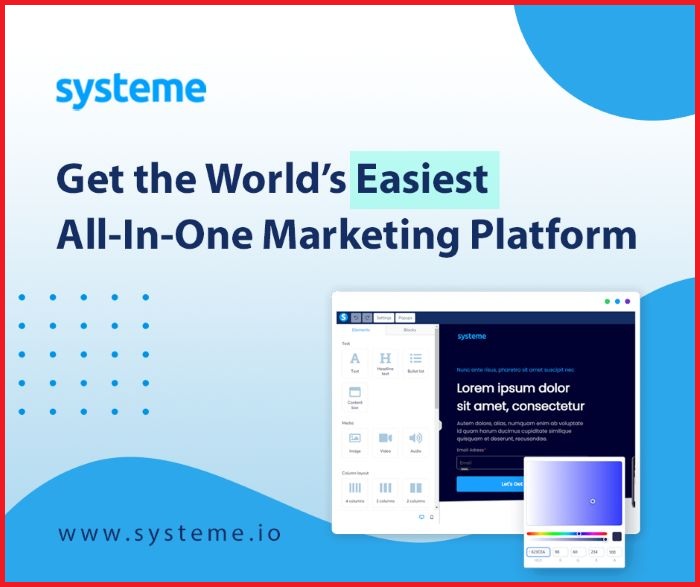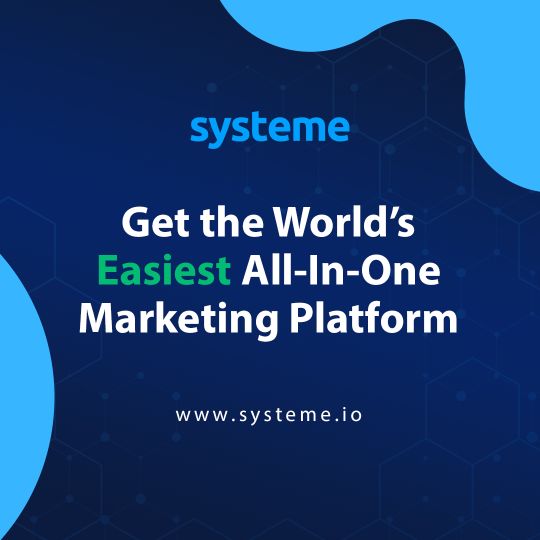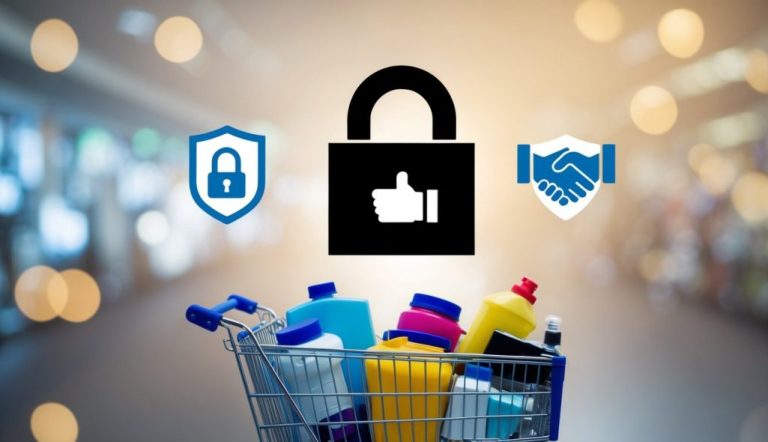In the world of e-commerce, email marketing remains a powerful tool to drive sales and increase customer engagement. Choosing the right platform is essential to maximize your efforts and streamline your marketing campaigns. Top email marketing platforms like Klaviyo and Mailchimp provide advanced tools specifically designed for e-commerce businesses, allowing you to target your audience effectively and boost your sales. These platforms offer features like automation, integration with popular e-commerce systems, and sophisticated reporting, making them invaluable resources for your business.

Effective email marketing platforms help you automate your campaigns, ensuring timely and relevant communication with your customers. By integrating with e-commerce tools such as Shopify or WooCommerce, these platforms can pull customer data to send personalized offers and updates. This improves customer experience and encourages repeat purchases.
Navigating through the various options can be daunting, but the best email marketing software ensures that you have access to features like responsive design and detailed analytics. These capabilities enhance your ability to craft engaging messages and assess the success of your campaigns. With the right tools, you can optimize your efforts and support your e-commerce business’s growth.
Key Takeaways
- Email platforms boost e-commerce sales.
- Automation enhances customer engagement.
- Integration ensures relevant communication.
The Importance of Email Marketing in E-Commerce
Email marketing plays a crucial role in e-commerce by fostering direct communication with customers. Using email campaigns effectively boosts engagement and sales, while automation streamlines and personalizes marketing efforts.
Fundamentals of Email Marketing
Email marketing is a central part of your e-commerce marketing strategy. It’s a direct channel where you control the content, unlike social media platforms. With email, you can send newsletters, promotions, and product updates directly to your customers’ inboxes. This allows for a personalized touch that can improve customer engagement.
Segmenting your email lists helps target specific customer groups. This ensures that the right message reaches the right audience. Tools like Omnisend and ActiveCampaign can help manage these tasks effectively, enhancing the reach of your campaigns.
Advantages of Using Email Campaigns
Email campaigns are a cost-effective marketing strategy that offer a strong return on investment. They enable direct communication, allowing for personal and timely messages to your audience. By delivering tailored content, you can boost sales and brand loyalty.
Promotional emails drive immediate action, while informational emails keep customers engaged with your brand story. Your campaigns can integrate with various e-commerce platforms to track results and adjust strategies accordingly. This makes emails a powerful tool for fostering long-term customer relationships and driving conversions in your e-commerce business.
Increasing Engagement with Email Automation
Automation enhances your ability to interact with customers without constant manual input. Automated emails can include welcome series, cart abandonment reminders, and re-engagement campaigns. These messages are triggered by specific actions, such as a customer browsing products, ensuring timely communication.
Email automation saves time and increases efficiency. It allows you to manage large volumes of communications while maintaining a personal touch with sophisticated tools. For example, solutions like Brevo enable seamless integration, ensuring emails are sent at the optimal time for engagement. This targeted approach maximizes your return on investment and strengthens customer relationships.
Choosing the Right Email Marketing Platform
When choosing an email marketing platform, focus on features, deliverability, and cost. The right choice can enhance your outreach and efficiency. Consider how well a platform integrates with e-commerce tools and whether it offers essential features like automation and social media integration.
Key Features to Consider
When selecting an email marketing service, start with features. Automation is crucial—it saves time by scheduling and sending emails based on user actions. Look for platforms with drag-and-drop editors to design professional emails easily. Some platforms, like Omnisend, emphasize e-commerce integrations, helping streamline operations.
Another important feature is segmentation. It allows you to send targeted messages to different groups of subscribers, increasing engagement. Consider platforms that offer robust analytics to measure the success of your campaigns. A/B testing is also valuable to determine which messages perform best.
Evaluating Email Deliverability
Email deliverability ensures your messages reach inboxes and not spam folders. A platform with good deliverability rates helps maintain your sender reputation. Mailchimp is noted for its user-friendly features and high deliverability.
Choose services with SPF and DKIM authentication to improve message validity. Platforms that provide detailed deliverability reports can help you monitor and improve performance. Look for platforms offering spam testing or scoring to refine your email content before sending.
Understanding Pricing Structures
Pricing varies across platforms. Some offer tiered subscription plans based on features or the number of subscribers. Investigating platforms like ActiveCampaign with flexible pricing models can be beneficial.
Consider platforms that provide a free trial to test services before committing. Understand the cost implications of additional features like advanced automation or dedicated support. Some platforms may offer discounts for annual subscriptions or nonprofit organizations, which could help manage costs effectively.
Enhancing E-Commerce Campaigns with Automation Tools
Automation tools can take your e-commerce campaigns to the next level by improving efficiency and engagement. With marketing automation, you can personalize customer interactions and recover lost sales with abandoned cart strategies.
Automation and Workflows
Automation and workflows in marketing can streamline your e-commerce operations significantly. Using automation templates, you can create predefined sequences that save you time and ensure consistency. These templates can encompass actions like sending welcome emails or confirming orders.
Workflows can also incorporate complex scenarios, such as cross-selling and upselling based on customer behavior. By automating these processes, your team can focus more on strategic tasks rather than repetitive actions. Introducing targeted emails at different steps of the shopping journey can also boost engagement and conversion rates.
Segmentation and Personalization
Segmentation allows you to divide your audience based on specific characteristics like purchase history or browsing behavior. This refined approach ensures that your messages align with your customers’ interests, making communications more effective.
Using segmentation, personalized emails can address customers by name and suggest products they are more likely to purchase. This individual attention makes your audience feel valued and increases the likelihood of a sale. Data-driven personalization, such as personalized product recommendations, can improve customer trust and satisfaction.
Abandoned Cart Recovery Techniques
Abandoned cart reminders are crucial in recovering lost sales. Many potential buyers add items to a cart but leave without completing their purchase. Timely, automated emails can remind customers of their abandoned cart, encouraging them to return and finish the transaction.
Including incentives, like limited-time discounts or free shipping in your reminders, can further entice customers to complete their purchases. You can integrate personalized messages and product images in these emails to make them more appealing. Effective abandoned cart recovery can significantly enhance your sales and reduce cart abandonment rates.
Integrating Email Marketing with Omnichannel Strategies
Combining email marketing with omnichannel strategies helps you reach customers on various platforms. By utilizing multiple channels, you can ensure consistent messaging across SMS, social media, and e-commerce systems like Shopify.
Multi-Channel Marketing
In a world where customers use multiple channels, multi-channel marketing ensures your brand communicates effectively. This involves sending cohesive messages through email, smartphones, and social media. Each platform has its strengths, but together they amplify your reach.
Start by aligning your email marketing with social media campaigns. Doing so allows you to engage customers where they’re most active. Ensure that your messages are tailored to each platform’s specific style and audience. This means adapting your content without losing your brand’s voice.
Another important tool is SMS marketing. Emails and SMS can run parallel, offering immediate notifications for promotions. This combination can drive better engagement rates, as many people check their SMS more frequently than email.
Utilizing SMS and Social Media
SMS marketing provides an immediate method to notify customers about sales, orders, or updates. It’s personal and often leads to high open rates.
Social media platforms are ideal for quick and interactive exchanges. They allow you to build a community around your brand. Connecting email campaigns with social media boosts visibility. For instance, you can share email content to social media followers, bringing more subscribers to your newsletter.
Advertising new products or services through these channels can create buzz. This strategy often results in increased traffic to your website and potentially higher sales. The integration of these tools forms a cohesive strategy to maintain your brand’s presence online.
Seamless E-Commerce Integrations
Connecting email marketing with e-commerce platforms is crucial. Systems like Shopify provide integrations that pull customer data into your campaigns. This makes personalization easier, enhancing the shopping experience.
E-commerce platforms often offer automated email options. They send reminders like abandoned cart emails, encouraging customers to complete their purchases.
Finally, integrations allow you to track customer behavior across platforms. This data is valuable for refining marketing efforts. By analyzing it, you can understand what resonates with your audience and adjust campaigns accordingly. This leads to better results and more satisfied customers.
Designing Engaging and Responsive Emails
Creating emails that catch the eye and engage the reader is essential for e-commerce success. By utilizing drag-and-drop editors, leveraging customizable templates, and focusing on dynamic content, you can craft messages that stand out.
Using Drag-and-Drop Editors
Drag-and-drop editors simplify email design by allowing you to easily arrange elements without coding knowledge. This feature enables you to customize layouts quickly, adding elements like images, buttons, and text where they best fit. Topol.io offers such functionality, helping you produce responsive emails with ease.
The visual approach provides flexibility and lets you focus on creativity instead of technicalities. Interactive features let you test different designs to see what works best for your audience, ensuring your emails look great on any device.
Leveraging Email Templates
Using templates is a smart way to build professional emails without starting from scratch. Many platforms include a library of customizable email templates. These templates provide a foundation for your design, letting you tweak colors, fonts, and images to match your brand.
This approach saves time and ensures consistency across your campaigns. By using platforms that integrate email templates, you also access responsive design features. This means your emails will automatically adjust to different screen sizes, enhancing readability and engagement.
Crafting Dynamic and Personalized Content
Incorporating dynamic content in your emails can greatly increase engagement. Dynamic content changes based on the recipient’s behavior or preferences, making each email feel uniquely tailored.
You can use customer data to personalize subject lines, product recommendations, or special offers. This personal touch can drive higher open rates and conversions. Using tools that integrate customer data with your email design lets you automate this process, ensuring your audience gets relevant content.
Analyzing Performance with Advanced Reporting
Gaining insights into how your email campaigns perform is key to improving your marketing efforts. With advanced tools, you can track analytics, understand customer behavior, and optimize with A/B testing to boost conversion rates.
Analytics and Reporting Features
To make the most of your email campaigns, you need robust analytics and reporting tools. These tools help you track metrics such as open rates, click-through rates, and conversion rates. By using these features, you can identify which emails resonate with your audience.
Detailed sales reporting allows you to track which campaigns lead to the most sales. Visual dashboards make it easier to analyze data and spot trends quickly. Some platforms integrate with other tools to provide a more comprehensive view of your performance.
Understanding Customer Behavior
Analyzing customer behavior is essential for tailoring your marketing strategy. Through email analytics, you can see how customers interact with your emails. This includes understanding which links they click and how long they spend on various pages after clicking through to your site.
By gaining insights into these behaviors, you can better segment your audience. This allows you to send more targeted content that aligns with their interests and increases engagement. Tools like Omnisend can help you better understand customer preferences.
Optimizing Campaigns with A/B Testing
A/B testing is a powerful method for enhancing your email marketing effectiveness. You can use it to test different subject lines, content layouts, or send times. This will help you determine what works best for your audience.
This testing helps improve conversion rates by identifying the most effective versions of your email content. As you implement changes based on A/B testing results, you’ll fine-tune your approach and maximize the impact of your campaigns. Remember to consistently experiment with different elements to keep your strategies optimized and relevant in shifting market conditions.
Top Email Marketing Platforms for E-Commerce
When looking for effective email marketing solutions for e-commerce, several platforms stand out. Each offers unique features that cater to different business needs, from comprehensive automation to beginner-friendly tools.
Mailchimp: Diverse Features for Marketers
Mailchimp is a popular choice among marketers for its user-friendly interface and robust feature set. It’s ideal if you’re seeking diverse marketing tools like customizable templates and a drag-and-drop editor. Mailchimp integrates easily with platforms like Shopify and offers detailed analytics to track campaign success. Their automation features are particularly helpful for sending tailored messages based on customer behavior. You can also segment audiences to ensure more personalized communication, helping to boost engagement.
Klaviyo: E-Commerce Focused Solutions
Klaviyo is designed with e-commerce in mind, making it perfect for businesses that need targeted solutions. It offers advanced segmentation, allowing you to send personalized emails based on shopping behavior and purchase history. With Klaviyo, you can automate campaigns for abandoned carts, welcome series, and more, enhancing your customer engagement. It integrates seamlessly with e-commerce platforms like Shopify, ensuring smooth data synchronization. Klaviyo’s analytics provide insights into revenue generated per email, helping you optimize strategies.
ActiveCampaign: Consumer-Centric Automation
ActiveCampaign excels in providing automation that centers around the consumer experience. It offers powerful email marketing apps tailored for various business sizes, featuring tools like automated workflows and customer behavior tracking. If your focus is on building strong customer relationships, ActiveCampaign’s CRM capabilities will help streamline communication. The platform enables personalized interactions through email and SMS, keeping your audience engaged. Its integration with e-commerce solutions allows for easy management of shopper data and campaign metrics.
Omnisend: An All-in-One Marketing Platform
Omnisend provides an all-in-one solution, combining email, SMS, and more into one platform. Specifically for e-commerce, Omnisend supports features like product recommendations and cart abandonment reminders. Its visual campaign builder is intuitive, simplifying the process of creating complex automation workflows. Omnisend integrates with tools like Shopify and Magento, ensuring flexibility and ease of use. With its focus on omnichannel marketing, you’ll have the ability to engage customers across different touchpoints effectively.
GetResponse: Comprehensive Tools for Entrepreneurs
GetResponse offers a comprehensive suite of tools perfect for entrepreneurs seeking to expand their reach. It combines email marketing, automation, and online marketing tools in one platform. With features like landing page creation and webinar hosting, GetResponse is more than just an email marketing app. Its automation builder helps you design custom workflows to nurture leads and drive sales. The platform also includes advanced segmentation to tailor messages to different customer groups, enhancing overall campaign effectiveness.
Support and Resources for Success
When choosing an email platform for e-commerce, customer support and access to learning materials are crucial. A robust community and authentic user reviews can further assist in deciding the best fit for your business needs.
Customer Support and Learning Materials
Having reliable customer support can make a big difference for business owners. You need a platform that offers multiple support channels like live chat, email, and phone support. This ensures you can get help when you encounter issues.
Platforms with detailed learning materials, including documentation and tutorials, can help you understand complex features easily. Look for those offering webinars and forums, as they add value by providing training sessions and facilitating community learning.
Community and User Reviews
The opinions and experiences of other users are important when selecting a platform. User reviews give insights into the platform’s strengths and weaknesses. Websites like Forbes can offer reviews from industry experts.
An active user community provides additional support. Platforms with active forums and user groups allow you to share tips and solve problems collectively. This feedback loop can be invaluable for refining your email marketing strategy and learning from others’ experiences.
Frequently Asked Questions
Choosing the right email marketing platform for your e-commerce business can be challenging. Here, we address some common questions about top-rated email services, integrations, and essential features.
What are the top-rated email marketing platforms for small businesses in 2024?
Mailchimp, HubSpot, and Zoho Campaigns are some of the highest-rated platforms for small businesses. Mailchimp is known for its email landing pages, and HubSpot excels in lead nurturing. Zoho Campaigns offers free tools, making it ideal for beginners.
Which email marketing services integrate best with Shopify for e-commerce operations?
Klaviyo and ActiveCampaign are excellent choices for integration with Shopify. Klaviyo provides seamless email automation tailored for e-commerce. ActiveCampaign offers hundreds of integrations, making it a versatile option for Shopify users.
How does Mailchimp perform for e-commerce businesses compared to other email marketing tools?
Mailchimp is known for being the largest newsletter platform. It’s versatile with features suitable for e-commerce. It falls slightly behind Klaviyo when it comes to advanced e-commerce capabilities, but it’s easy to use and well-suited for email landing pages, especially for small to medium-sized businesses.
What features should one look for in an email marketing platform tailored to e-commerce?
Look for features like automation, audience segmentation, and integration capabilities. It’s also important to have tools for tracking customer behavior and personalizing email content to enhance user engagement and conversion rates. Platforms like Omnisend and Klaviyo excel in these areas.
Can you recommend robust free email marketing platforms suitable for e-commerce startups?
Zoho Campaigns and MailerLite offer excellent free plans for startups. Zoho is suitable if you’re starting with limited resources and need essential tools at no cost. MailerLite is ideal for bulk emailing, making it a great choice for startups looking to grow without heavy investment.
Which email service providers offer advanced automation features for e-commerce marketing campaigns?
Klaviyo and ActiveCampaign both provide advanced automation features that cater specifically to e-commerce. Klaviyo is particularly strong with its automation capabilities, making it a go-to for personalized marketing efforts. Meanwhile, ActiveCampaign offers a robust set of tools for managing automated workflows efficiently.





